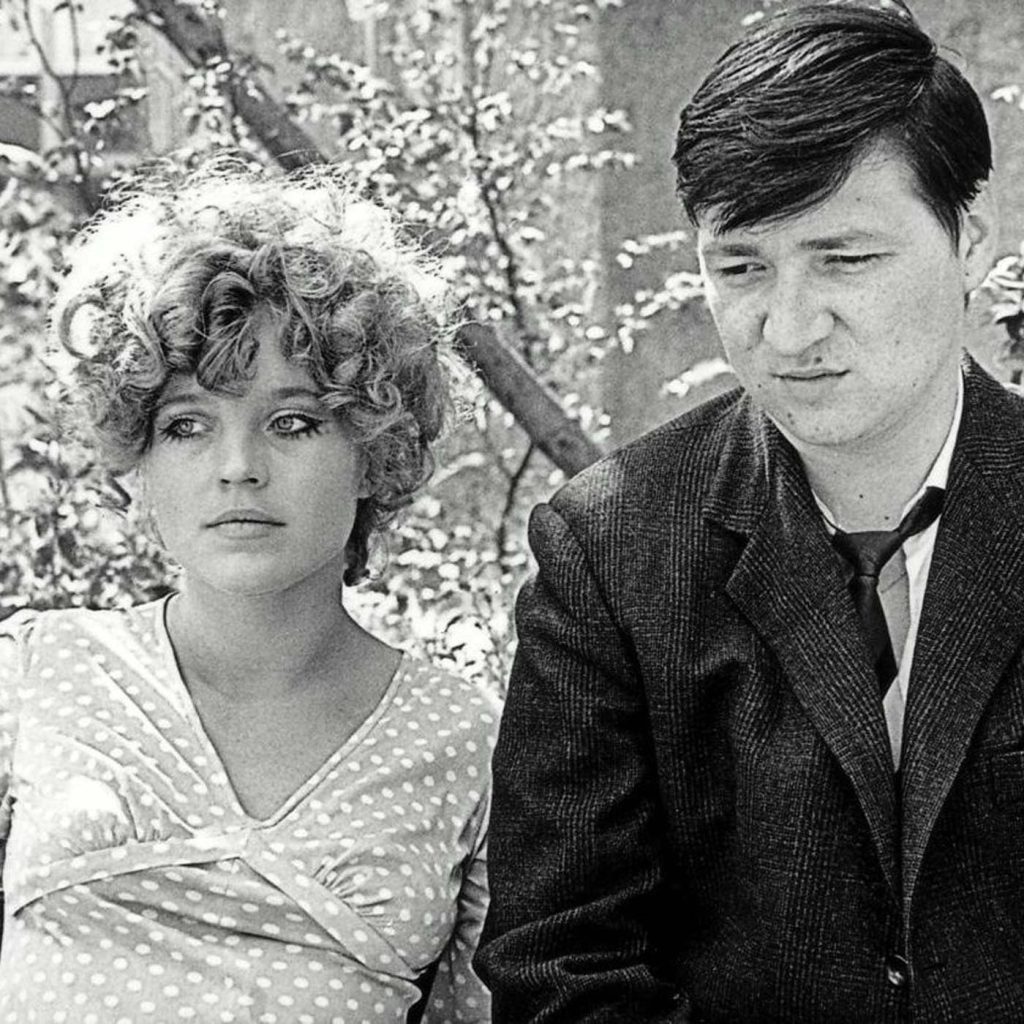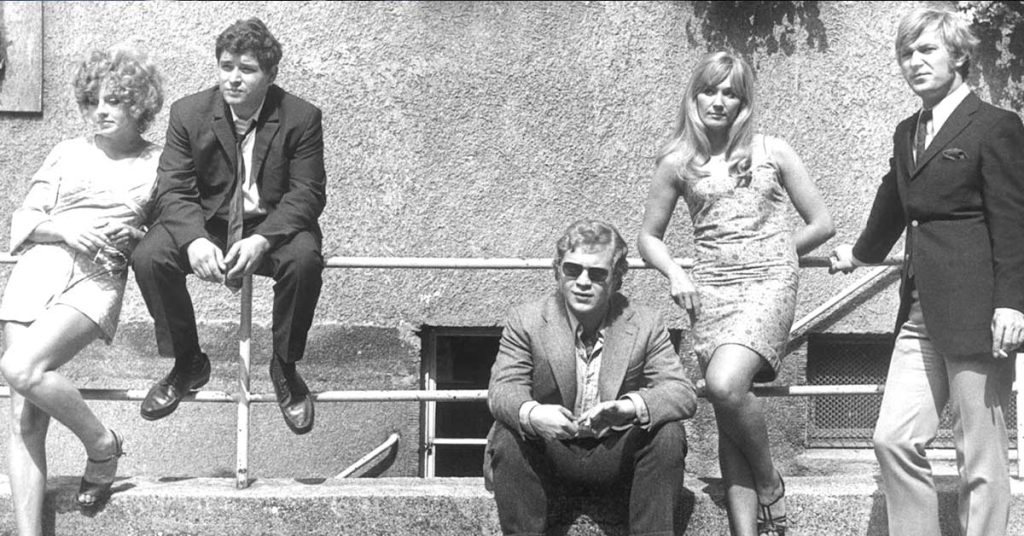There are directors who earn a place in film history for what they showed, and others—like Rainer Werner Fassbinder—for what they stripped bare. Not just their characters, but an entire society. Nearly forty years after his death, Fassbinder’s films still hit as hard as they did the first time. Not only because of their razor-sharp aesthetics and furious energy, but because of the clarity with which they portray a Germany torn between the weight of its past and the hollow promise of progress. These days, Sala Lugones at the Teatro San Martín is dedicating a retrospective to him—a unique opportunity to see on the big screen one of the most uncomfortable and lucid filmmakers of the 20th century.
Fassbinder was born in 1945, the same year World War II ended. His body of work can be read as a constant confrontation with that legacy: a childhood lived among physical and moral ruins, a youth marked by silence and collective denial of Nazi horrors, and an adulthood spent exposing the cracks in that supposed reconstruction. But not from the solemn stance of historical or moralizing cinema. His language was melodrama, excess, tension, and desire. A cinema that was political not through explicit discourse, but in the way it framed human relationships as miniature versions of German history.
Fassbinder’s cinema is, among many things, a long argument with the Nazi past. Not through direct denunciation, but through the lingering echoes in everyday life: in family hierarchies, in the authoritarian figure of the father, in barely concealed (or overt) racism, in sexual and emotional repression, in the nostalgia for a lost order. For him, postwar Germany had overcome nothing. It had drawn a veil, hung a modern curtain, but the structures of domination remained intact. In The Marriage of Maria Braun (1979), one of his most famous films, he says it outright: the protagonist, Maria, survives the chaos of war by marrying a soldier who disappears at the front, and then climbs the social ladder by learning to manipulate men in a world in ruins. The ending, no spoilers, is a literal and symbolic explosion of that false prosperity. Fassbinder turns Maria’s life into a parable of the so-called “economic miracle”: a society built on denial, on what remains unsaid, on a pact of silence. The Nazi past isn’t addressed—it’s buried, covered over with new buildings and business deals. But the director makes it clear that the past still throbs, toxic, just beneath the surface.
Fassbinder didn’t need to show uniforms or concentration camps to speak of authoritarianism. A couple in an apartment, a mother and daughter who don’t listen to each other, a boss humiliating an employee—these were enough. In his films, the violence of power lies in the details: in a cutting remark, in a crushing glance, in an emotional structure that leaves no room to breathe. Films like Martha (1974) or In a Year with 13 Moons (1978) portray relationships marked by emotional cruelty and emotional blackmail. In Martha, for instance, the husband controls his wife’s every move: how she walks, how she dresses, how she behaves. And she accepts this domination with a mix of terror and desire. It’s a love story, yes, but told like a nightmare. In that relationship, we can read the shadow of a country that also learned to submit to authority—even when that authority becomes monstrous. Fassbinder understood that power is not only exercised through institutions, but also through bodies, through the forms of affection, through what is expected of us and what we are willing to endure. That’s why his cinema is profoundly political, even if it doesn’t always appear so on the surface.
Another central thread in his work is desire. Fassbinder, who was openly bisexual at a time when that entailed real risk, turned eroticism and sexual tension into tools of political analysis. His characters desire intensely, but almost always at the wrong time, against the norm, with guilt or with rage. And that dissonance is what reveals the weight of social repression. In Fox and His Friends (1975), for example, a poor gay man falls in love with a bourgeois who seduces and then emotionally destroys him. Love, instead of offering freedom, reproduces the same power structures that shape society: the richer, more educated, more socially adept character prevails. Desire, instead of being a space of liberation, becomes another battleground. Fassbinder, far from idealizing queer relationships, portrays them in all their complexity and contradiction, always shaped by the social context. The same occurs in The Bitter Tears of Petra von Kant (1972), an almost theatrical piece where a dominant fashion designer becomes obsessed with a young model. The film is a meticulous study of desire as a form of control and self-destruction. Fassbinder uses artifice, overloaded décor, wigs, and exaggerated gestures to show that beneath the surface lies something much more brutal: an emotional war where no one wins.
Fassbinder despised hypocrisy. And few things were more intolerable to him than middle-class progressivism that spoke of freedom while maintaining all the structures of domination intact. That’s why his films are full of bourgeois characters who think they’re modern, open-minded, and tolerant, but in reality, replicate the logic of power with a smile on their face. In Ali: Fear Eats the Soul (Angst essen Seele auf, 1974), an older German woman falls in love with a much younger Moroccan immigrant. At first, her acquaintances pretend to accept the relationship. But soon, racism, prejudice, and rejection rise to the surface. Fassbinder shows how society reacts violently to any deviation from the norm, and how even the most sincere love can suffocate under the weight of social scrutiny. His critique isn’t limited to racism or classism, but extends to how society organizes itself to expel what it doesn’t understand. The neighbors, the friends, the colleagues—all participate in an exclusionary logic, even if they never say it aloud. It’s that very sense of “normality” that Fassbinder challenges, showing that beneath what seems proper lies something deeply sinister.



